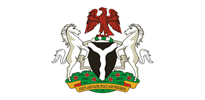National Assets: To Shape Up Or Ship Out?
Kenechi Mbajiorgu (Research Fellow 2 @ NIALS)
Recession, stagnation, inflation, even stagflation are negatives that have become familiar with respect to descriptions of the current status of the Nigerian economy. An economy is said to be in recession when there is a decline of the Gross Domestic Product (GDP) for two consecutive quarters within one economic year.
A combination of stagnation and inflation gives rise to stagflation which is a condition of slow economic growth and relatively high unemployment–economic stagnation–accompanied by rising prices, or inflation and a decline in GDP. The National Bureau of Statistics (NBS) has officially announced figures which indicate a steady decline of the GDP coupled with widely reported incidences of job cuts/losses as well as increased cost of commodities which clearly places the Nigerian economy as beleaguered with the negatives mentioned above.
Thus, frantic efforts ought to be made to reverse the negative trend outlined above. It may well be the reason for the recent interests in and suggestions of sale of national assets to create the much needed liquidity as well as shore up slumping foreign reserves. The question then arises as to the legality or otherwise of such actions since liquidation of assets ought to be a last resort measure after all other legal and economic interventions have been expended without success.
The Nigerian Constitution requires the state to control national economy in a manner that (a) guarantee maximum welfare, (b) safeguard freedom and happiness of every citizen on the basis of social justice, and equality of status and opportunity, and (c) ensure that the economic system is not operated in such a manner as to permit the concentration of wealth or the means of production and exchange in the hands of few individuals or of a group. Although these provisions are from Chapter II of the Constitution known to be non-justiciable, they are not to be disregarded. Furthermore, Section 44 of the Constitution provides for the management and deployment of natural resources within the country by the federal government as prescribed by the national assembly. It is on the basis of this constitutional provision that the Senate in its plenary session on 27th September 2016 overruled the recommendation of the National Economic Council (NEC) that the Federal Government divest its holdings in critical national assets in exchange for funds to ostensibly stimulate the economy.
Nigeria has a history of such sale and privatisation of public assets yet there are not much success stories or positive yields to warrant another visit down the much travelled road of sale. The sale of the Nigerian Telecommunications Limited (NITEL), the Ajaokuta Steel Industry as well as the privatisation of the National Electric Power Authority (NEPA) now known as the Power Holding Company of Nigeria (PHCN) come quickly to mind. A number of national stakeholders, legal luminaries and economists such as Femi Falana, SAN; Prof Chukwuma C. Soludo (Former Governor of the Central Bank of Nigeria) have also criticised these proposals essentially mirrored by the position of the Senate.
Despite arguments in support of a proposed sale of assets, it is evident from the foregoing that a sound legal and economic policy framework must be put in place to ensure profitability of the commonwealth of the people and a robust economy rather than possible concentration of wealth in the hands of a few to the detriment of the larger Nigerian society.
Copyright © 2021 Nigerian Institute of Advanced Legal Studies. All rights reserved.

